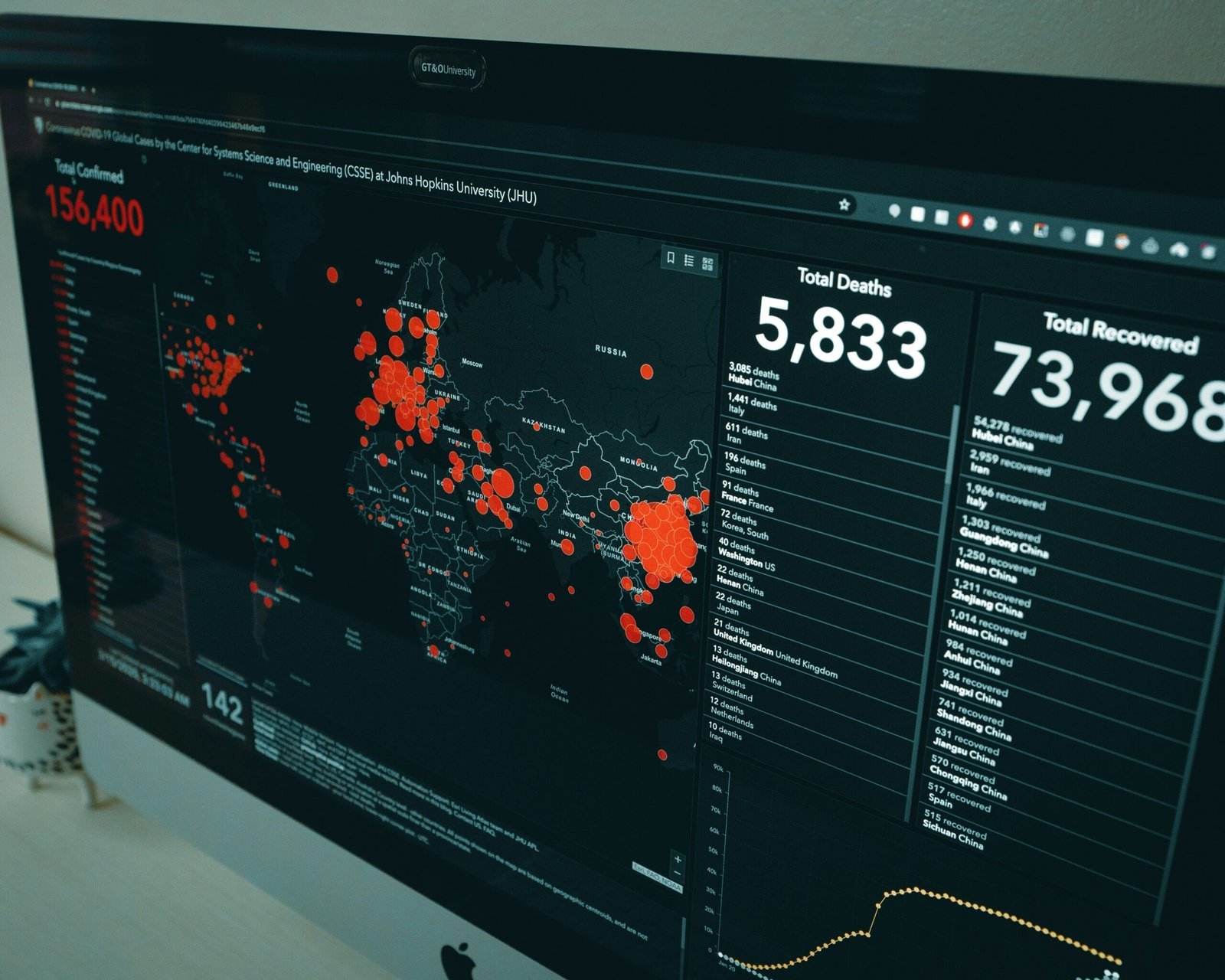
Introduction to AI in Healthcare
Artificial intelligence (AI) is revolutionizing the healthcare industry, offering transformative potential across various facets of medical practice and administration. The integration of AI technologies within healthcare settings promises numerous benefits, from improved diagnostic accuracy to enhanced patient outcomes and reduced operational costs. By leveraging sophisticated algorithms and machine learning, AI can analyze vast amounts of data far more quickly and accurately than traditional methods.
One of the most significant advantages of AI in healthcare is its capacity for predictive analytics. These systems can mine through extensive datasets to identify patterns and predict potential health issues before they become critical, enabling early intervention and personalized treatment plans. This proactive approach not only enhances patient care but also contributes to more efficient resource allocation and cost management within healthcare organizations.
Another critical role of AI is in the realm of personalized medicine. By considering an individual’s unique genetic makeup, lifestyle, and health history, AI-driven systems can tailor medical treatments specifically to the patient’s needs. This level of customization holds the promise of more effective therapies, quicker recoveries, and overall better health outcomes. Personalized medicine also fosters a more patient-centered approach, enhancing the overall healthcare experience.
Despite its promising potential, the integration of AI in healthcare does present challenges. Issues such as data privacy, the need for substantial initial investment, and the requirement for ongoing training and adaptation of healthcare professionals to new technologies cannot be overlooked. Moreover, the ethical implications of AI decision-making in clinical settings necessitate careful consideration and regulatory oversight.
The growing importance of AI in healthcare is undeniable, as it continues to drive advancements in predictive analytics and personalized medicine. These technologies are poised to reshape the landscape of healthcare, making it more efficient, precise, and patient-focused. The subsequent sections will delve deeper into specific applications and the impact of AI on predictive analytics and personalized medicine.
Predictive Analytics: Revolutionizing Healthcare
Predictive analytics, driven by artificial intelligence, is transforming the healthcare industry by harnessing the power of historical data, machine learning algorithms, and statistical techniques to forecast future outcomes. This innovative approach enables healthcare providers to make informed decisions, leading to enhanced patient care and optimized healthcare operations.
At its core, predictive analytics involves analyzing past data to identify patterns and predict future events. In the context of healthcare, this means utilizing vast amounts of data from electronic health records (EHRs), medical imaging, genetic information, and other sources to anticipate and mitigate potential health issues. Machine learning algorithms play a crucial role in this process, as they can process complex datasets and uncover insights that may not be immediately apparent to human analysts.
One prominent application of predictive analytics in healthcare is the prediction of patient readmissions. By analyzing patient history, treatment plans, and other relevant data, predictive models can identify individuals at high risk of readmission. This allows healthcare providers to intervene proactively, implementing preventive measures and personalized care plans to reduce the likelihood of readmission.
Another significant application is in identifying high-risk patients. Predictive analytics can help pinpoint patients who are at elevated risk of developing chronic conditions or experiencing adverse health events. For instance, by analyzing lifestyle factors, genetic predispositions, and historical health data, healthcare providers can create tailored intervention strategies to manage and mitigate these risks effectively.
Predictive analytics also plays a critical role in anticipating disease outbreaks. By monitoring and analyzing epidemiological data, public health officials can predict potential outbreaks and allocate resources accordingly. This proactive approach enables timely interventions, reducing the spread of infectious diseases and minimizing their impact on communities.
The impact of predictive analytics on clinical decision-making and resource allocation cannot be overstated. By providing actionable insights, predictive models enhance the accuracy of diagnoses, improve treatment outcomes, and streamline the allocation of healthcare resources. This leads to more efficient healthcare operations, ultimately resulting in better patient care and reduced healthcare costs.
In summary, predictive analytics is revolutionizing healthcare by empowering providers with the tools and insights needed to anticipate and address health issues before they escalate. Through the integration of AI and advanced data analysis techniques, predictive analytics is poised to continue transforming the healthcare landscape, fostering a future of more personalized and effective patient care.
Personalized Medicine: Tailoring Treatments to Individuals
Personalized medicine represents a transformative approach in healthcare, emphasizing the customization of medical treatment to the individual characteristics of each patient. This model takes into account a patient’s genetic profile, lifestyle, and environmental factors to devise tailored therapeutic strategies. The integration of Artificial Intelligence (AI) into personalized medicine has significantly enhanced its accuracy and effectiveness, providing a more precise and proactive healthcare paradigm.
One of the most prominent areas where AI-driven personalized medicine is making a substantial impact is oncology. By analyzing genetic mutations and variations within cancer cells, AI algorithms can identify the most effective targeted therapies for individual patients. This precision in treatment selection not only improves the efficacy of cancer therapies but also minimizes adverse effects, offering a better quality of life for patients undergoing treatment.
Another significant application of AI in personalized medicine is pharmacogenomics, which studies how genes affect a person’s response to drugs. AI systems can analyze vast datasets to predict how different individuals will react to specific medications, thereby guiding healthcare providers in prescribing the most suitable drugs and dosages. This predictive capability reduces the trial-and-error approach traditionally associated with drug prescriptions, leading to more efficient and safer treatments.
In the realm of chronic disease management, AI-driven personalized medicine is proving to be invaluable. Conditions such as diabetes, cardiovascular diseases, and asthma require continuous monitoring and adjustment of treatment plans. AI can process real-time data from wearable devices and other health monitoring tools to provide personalized recommendations, ensuring optimal control of these chronic conditions and preventing complications.
The benefits of personalized medicine are manifold, including improved treatment outcomes, reduced side effects, and a more patient-centered approach to healthcare. However, the implementation of this advanced medical model raises ethical and privacy concerns. The collection and analysis of personal health data necessitate stringent measures to protect patient confidentiality and prevent misuse of sensitive information. Ethical considerations also revolve around ensuring equitable access to personalized treatments and avoiding potential biases in AI algorithms.
Future Prospects and Ethical Considerations
The future of AI in healthcare, particularly in the realms of predictive analytics and personalized medicine, holds transformative potential. As advanced machine learning models continue to evolve, they promise to enhance the precision and effectiveness of predictive analytics. These models can analyze vast datasets, identifying patterns and trends that might elude human analysis. The integration of big data analytics with electronic health records (EHRs) and wearable devices further augments the predictive capabilities, enabling real-time monitoring and early detection of health issues.
Emerging technologies are set to revolutionize personalized medicine. Wearable devices, capable of continuously tracking vital signs and other health metrics, provide a wealth of data that, when analyzed by AI, can lead to highly individualized treatment plans. This data-driven approach ensures that patients receive care tailored to their unique genetic makeup, lifestyle, and health history, resulting in improved outcomes and more efficient healthcare delivery.
The potential impact on the healthcare industry is profound. Predictive analytics can lead to early interventions, reducing the incidence of severe health events and subsequent treatment costs. Personalized medicine ensures that therapeutic interventions are more effective, minimizing the trial-and-error aspect of traditional treatments. These advancements not only enhance patient outcomes but also contribute to significant cost savings and more efficient allocation of healthcare resources.
However, the integration of AI in healthcare is not without challenges. Ethical considerations are paramount. Data privacy concerns arise with the extensive use of personal health data. Ensuring that patient information is securely stored and shared only with authorized entities is crucial. Algorithmic bias is another significant issue, as AI systems can inadvertently perpetuate existing healthcare disparities. It is essential to develop algorithms that are fair and unbiased, reflecting the diversity of the patient population.
Finally, robust regulatory frameworks are needed to oversee the deployment of AI technologies in healthcare. These frameworks should ensure that AI applications are safe, effective, and equitable, fostering trust among patients and healthcare providers. Addressing these ethical considerations and challenges is vital to harness the full potential of AI in transforming healthcare.










